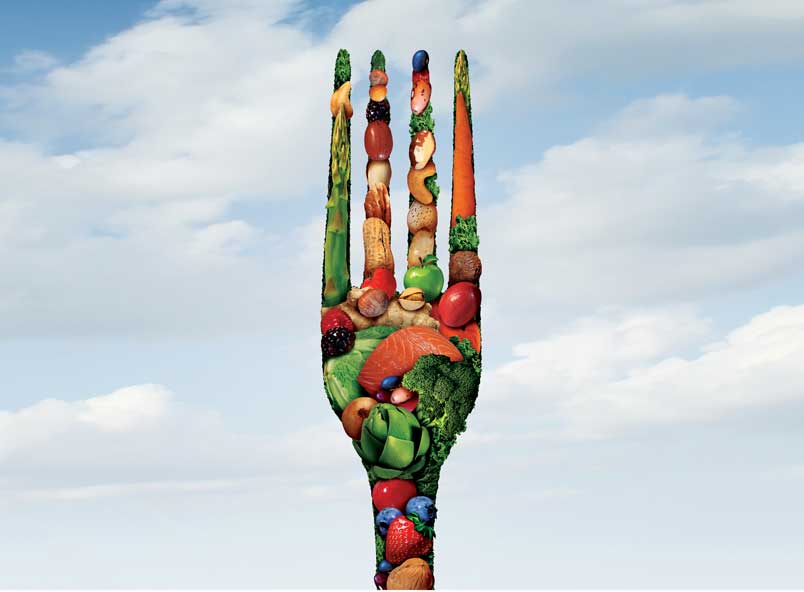On Oct 4, 2018, the European Commission (EC) published a draft Commission Regulation amending Annex III to Regulation (EC) No 1925/2006 of the European Parliament and of the Council with regard to trans fats, other than trans fats naturally occurring in animal fat, in foods intended for the final consumer. Stakeholders were invited to submit their comments.
The Draft Regulation proposes a maximum limit of trans fats, other than those naturally occurring in animal fat, in food which is intended for the final consumer, of 2g per 100g of fat. Food which does not comply may continue to be placed on the market until April 1, 2021
Trans fats are a particular type of unsaturated fatty acids. In Regulation (EU) No 1169/2011 they are defined as ‘fatty acids with at least one non-conjugated (namely interrupted by at least one methylene group) carbon-carbon double bond in the trans configuration’.
Some trans fats are produced industrially. The primary dietary source of industrial trans fats is partially hydrogenated oils. These generally contain saturated and unsaturated fats, among them trans fats in variable proportions (ranging up to more than 50%), according to the production technology used. Trans fats can also be naturally present in food products derived from ruminant animals, such as dairy products or meat from cattle, sheep or goat.

Timeline and details
- In accordance with Regulation (EC) No 1925/2006, the EC may, on its own initiative, take a decision to include a substance, other than a vitamin or mineral, or an ingredient containing such substance in Annex III to that Regulation, listing the substances whose use in foods is prohibited, restricted or under Union scrutiny, if that substance is associated with a potential risk to consumers as provided for in Article 8(1) of that Regulation.
- On Dec 4, 2009, the European Food Safety Authority (EFSA) adopted a scientific opinion concluding that the intake of trans fats should be as low as possible within the context of a nutritionally adequate diet.
- On Dec 3, 2015, the EC adopted a report on trans fats in foods and in the overall diet of the Union population. The report recalled that coronary heart disease is the leading cause of death in the Union and a high intake of trans fats seriously increases the risk of heart disease, more than any other nutrient on a per calorie basis.
- The report concluded that establishing a legal limit for industrial trans fats in food appears to be the most effective measure in terms of public health, consumer protection and compatibility with the internal market.
- On April 30, 2018, the EC asked the EFSA to compile the outcomes of scientific advice already provided by the EFSA on the health effects of trans fats, in particular on nutrition and health claims, dietary reference values and food additives; and to inform the EC on how such scientific advice relates to current goals and recommendations on the intake of trans fats to maintain health.
- On June 19, 2018, the EFSA provided its conclusion in the form of scientific and technical assistance. It concluded, based on review of available scientific evidence, that according to the latest national and international recommendations, dietary intake of trans fats should be as low as possible.
- On May 15, 2018, the World Health Organisation called for the elimination of industrially-produced trans fats from the global food supply.
- Trans fats are a substance other than vitamins and minerals for which harmful effects on health have been identified. The substance should therefore be placed in Part B of Annex III to Regulation (EC) No 1925/2006 and its addition to foods or its use in the manufacture of foods should only be allowed under the conditions specified in that Annex, in view of the current state of scientific and technical knowledge.
- Regulation (EC) No 1925/2006 should therefore be amended accordingly.
- The definitions of ‘fat’ and of ‘trans fats’ set out in Annex I to Regulation (EC) No 1169/2011 of Oct 25, 2011 of the European Parliament and of the Council should apply to the relevant terms in Part B of Annex III to Regulation (EC) No 1925/2006.
- In order to enable food business operators to adapt to the new requirements which will result from this Regulation, appropriate transitional measures should be adopted.
- The measures provided for in this Regulation are in accordance with the opinion of the Standing Committee on Plants, Animals, Food and Feed.
Article 1
The following conditions shall apply:
- The content of trans fats, other than trans fats naturally occurring in animal fat, in food which is intended for the final consumer, shall not exceed 2g per 100g of fat.
- The definitions of ‘fat’ and of ‘trans fats’ set out respectively in points (2) and (4) of Annex I to Regulation (EC) No 1169/ 2011 shall apply.
Article 2
– This Regulation shall enter into force on the 20th day following that of its publication in the Official Journal of the European Union.
– Food which does not comply with this Regulation may continue to be placed on the market until April 1, 2021.
– This Regulation shall be binding in its entirety and directly applicable in all member-states.
This edited article combines information from the EC website (https://ec.europa.eu) and the Draft Regulation. The Draft has not been adopted or endorsed by the EC. Any views expressed are the preliminary views of the Commission services and may not in any circumstances be regarded as stating an official position of the EC.





